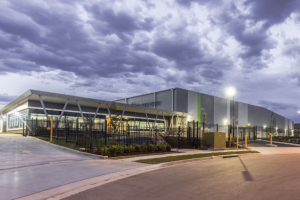Mcr and Lpool Universities win combined £750k for research commercialisation

THE Medical Research Council and the Technology Strategy Board have made their first funding awards to support the commercialisation and testing of research – with two North West universities among the beneficiaries.
Liverpool University’s School of Tropical Medicine and the University of Manchester have each been awarded £250,000 and £500,000 respectively under the joint £180m Biomedical Catalyst, which is run jointly by the Medical Research Council and the Technology Strategy Board.
The MRC Confidence in Concept awards, totalling £7.4m across 14 universities, aim to help the universities progress more promising research ideas towards clinical testing.
Universities receiving an award have control over allocating the funding internally, allowing them to respond rapidly to new opportunities and have the flexibility to pursue the most promising translational research opportunities.
The Liverpool School of Tropical Medicine will use the £250,000 award to strategically fund into specific early discovery research. This will pump-prime research to develop drugs that are active against multi-drug resistant Tuberculosis, identification of new chemical starting points for new anti-malarial drugs or resistance breaking insecticides which will all play a role in the war against disease in developing countries.
In Manchester, the £500,000 award will be used to accelerate progress in translating our discovery science in areas of key strategic importance to the university and MRC such as cancer, inflammation, regenerative medicine, women’s and children’s health, medical genetics, cardiovascular and neurodegenerative disorders.
Dr Graham Cadwallader, director of the Research Deanery in the university’s Faculty of Medical and Human Sciences, said: “This is an extremely timely and welcome initiative from the MRC that will see much-needed funding invested at the earliest stages of translational research. The £500,000 will help to unlock the potential for progressing some of the most promising concepts emerging from our basic science portfolio and place them firmly on the pathway to the development of novel therapeutics, diagnostics and devices of medical importance.”
Minister for Universities and Science David Willetts said: “The UK’s world leading life sciences industry is changing fast and we need to stay ahead of the game. The Biomedical Catalyst will help bridge the so-called ‘valley of death’ that exists between when a bright new idea is developed in the laboratory and the point when a new drug or technology can be invested in by the market. This will support our most innovative life sciences SMEs and academics, drive growth and benefit patients.”
The Biomedical Catalyst, announced by Prime Minister David Cameron in December 2011, is a programme of public funding designed to deliver growth to the UK life sciences sector. Delivered jointly by the MRC and the Technology Strategy Board, the Catalyst is a key feature of the UK Government’s Life Sciences Strategy.








